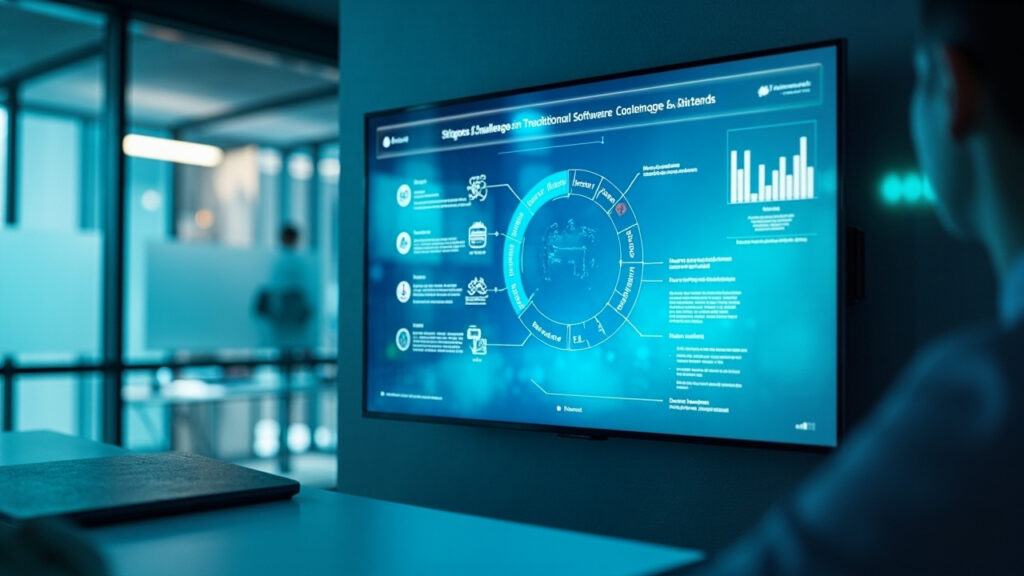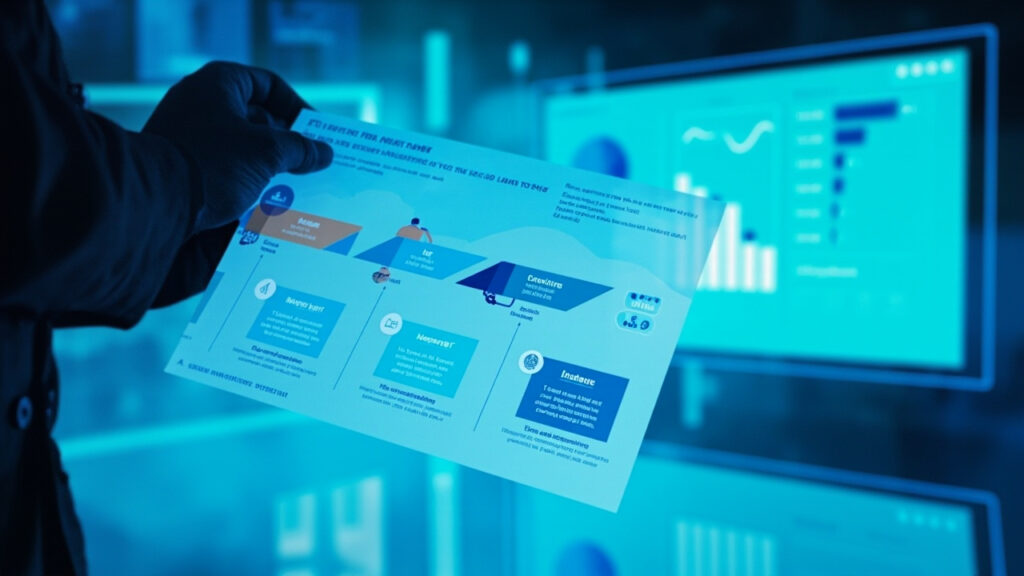In an era dominated by rapid technological advancements, the landscape of software development is constantly evolving. As software becomes more integral to business operations and daily life, the imperative to ensure its quality and reliability has never been more pressing. Traditional software testing methods, while once effective, now struggle to keep pace with the complexities and accelerated timelines demanded by modern development practices.
This blog post delves deep into the world of software testing, highlighting the challenges faced by today’s quality assurance (QA) teams and how innovative solutions, particularly those powered by artificial intelligence (AI), are revolutionizing this critical field. By the end of this exploration, you’ll not only appreciate the intricacies of software testing but also understand how cutting-edge tools like GenQE are transforming it into a more efficient, accurate, and cost-effective process.
The Evolution of Software Testing

Software testing has undergone a significant transformation over the past decades. Initially, testing was a manual process conducted by teams who followed strict procedures to ensure software functionality. As technology advanced, so did testing methodologies, incorporating automated tests to increase efficiency and coverage.
The Shift from Manual to Automated Testing
In the early days, manual testing was the backbone of QA. Testers would manually execute tests without any software tools, a time-consuming and error-prone process. The introduction of automated testing tools marked a pivotal shift, enabling faster execution of test cases and repetition of predefined test scripts.
The Role of Automation in Modern QA
Automation has become a cornerstone of modern software testing strategies. It supports continuous integration and delivery pipelines by providing rapid feedback on the health of the application. However, despite automation’s benefits, challenges such as test maintenance, script flakiness, and the high initial setup cost still persist.
The Challenges of Traditional Testing Methods

As software systems grow in complexity and scale, traditional testing methods often fall short. The dynamic nature of contemporary software development, characterized by frequent updates and iterations, demands more than what manual and basic automated tests can offer.
Test Coverage and Maintenance
Achieving comprehensive test coverage remains a daunting challenge. Traditional methods often miss critical edge cases or fail to keep up with rapid changes in the application’s UI or functionality, leading to defects slipping through.
Speed vs. Quality Conundrum
In the race to shorten development cycles, QA teams are often pressured to reduce testing times, which can inadvertently compromise the quality of the software. Balancing speed and thoroughness in testing is a key challenge in today’s fast-paced development environments.
Integration with Modern Development Practices
Integrating testing with modern development practices such as DevOps and agile methodologies is crucial yet challenging. Traditional testing tools often lack the flexibility and speed to adapt to these dynamic environments.
Leveraging AI for Enhanced Software Testing

The advent of AI in software testing promises to address many of the limitations of traditional approaches. AI-powered testing tools like GenQE are at the forefront of this transformation, offering capabilities that streamline the testing process and enhance its effectiveness.
AI-Driven Test Generation
One of the standout features of AI in testing is the ability to generate test cases automatically. Tools like GenQE analyze application data and user interactions to create comprehensive and effective test suites, significantly reducing the manual effort involved in test design.
Intelligent Test Execution and Maintenance
AI enhances test execution by prioritizing test cases based on risk and potential impact, ensuring that critical issues are identified early. Additionally, AI’s capability to learn from past test results helps in optimizing the testing process over time.
Self-Healing Tests
AI-powered tools can automatically update test scripts when changes occur in the application, a feature known as self-healing. This significantly reduces the maintenance burden and keeps the test suite robust against application changes.
GenQE: A Paradigm Shift in Software Testing

Integrating GenQE within the broader discussion of AI in software testing showcases its role as a transformative tool. This platform exemplifies how AI can be leveraged to overcome traditional testing challenges and improve software quality assurance.
Comprehensive Test Coverage Across Platforms
GenQE provides extensive coverage across different environments such as web, mobile, APIs, and cloud, ensuring applications perform seamlessly on any platform. This is crucial for businesses aiming to provide a consistent user experience across all channels.
Seamless Integration with Development Pipelines
The ability of GenQE to integrate smoothly with popular CI/CD tools like Jenkins, GitHub Actions, and Azure DevOps exemplifies its adaptability to modern software development practices. This integration facilitates continuous testing, essential for agile and DevOps environments.
Advanced Analytics and Reporting
With GenQE, teams gain access to detailed insights and AI-driven recommendations, which help in making informed decisions about the software’s quality and the testing process. This data-driven approach aids in continually refining testing strategies and improving outcomes.
The Future of Software Testing with AI

The integration of AI into software testing is not just a trend but a necessity as software continues to evolve in complexity and scale. AI-powered tools like GenQE represent the future of quality assurance, offering solutions that are not merely enhancements but essential transformations to meet the demands of modern software development.
Predictive Analytics and Real-Time Feedback
The future will likely see more advanced predictive analytics capabilities in AI testing tools, enabling real-time feedback and proactive issue resolution. This will further decrease time to market and enhance software quality.
Increasing Adoption and Continuous Evolution
As more organizations recognize the benefits of AI in testing, its adoption will continue to grow, leading to further innovations and improvements in testing technologies.
Conclusion: Embracing the AI-Driven Testing Era

The journey through the evolution, challenges, and revolutionary impact of AI on software testing underscores the transformative power of technology. For organizations aiming to enhance their software quality while reducing costs and accelerating development cycles, adopting AI-powered tools like GenQE is not just an option but a strategic imperative.
As we look to the future, the potential of AI in software testing is boundless. It promises not only to streamline existing processes but also to redefine what is possible in software quality assurance. The key to success in this new era will be the willingness to embrace these innovations and integrate them seamlessly into development practices.
For those ready to take their software testing to the next level, exploring tools like GenQE could be the first step towards a more efficient, accurate, and innovative future. Let’s pave the way for a smarter, faster, and more reliable world of software.
[CTA: Explore the possibilities of AI-driven testing with GenQE and revolutionize your software development process today.]
Discover More Innovative Solutions
Want to learn more about the tools and technologies discussed in this article? Explore how these innovations can be tailored to your specific needs and workflow requirements.
Our team of experts is available to answer your questions and provide personalized insights into how modern solutions like GenQE can address your specific challenges.